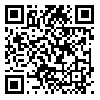Volume 1, Issue 2 (June 2022)
IJER 2022, 1(2): 73-84 |
Back to browse issues page
Download citation:
BibTeX | RIS | EndNote | Medlars | ProCite | Reference Manager | RefWorks
Send citation to:



BibTeX | RIS | EndNote | Medlars | ProCite | Reference Manager | RefWorks
Send citation to:
Salehi A, Sahraian Z. (2022). A review of the theoretical framework of the flipped classroom, with an emphasis on implementation methods in elementary schools in Iran. IJER. 1(2), 73-84. doi:10.52547/ijer.1.2.73
URL: http://ijer.hormozgan.ac.ir/article-1-28-en.html
URL: http://ijer.hormozgan.ac.ir/article-1-28-en.html
1- MA in Educational Psychology, Office of Education, Bandar Abbas Region 2, Bandar Abbas, Iran
2- MA student, Department of Educational Psychology, Islamic Azad University, Bandar Lange Branch, Bandar Lange, Iran ,Sahraianza@gmail.com
2- MA student, Department of Educational Psychology, Islamic Azad University, Bandar Lange Branch, Bandar Lange, Iran ,
Abstract: (2498 Views)
The present study aimed to provide a theoretical framework and research background on the Flipped classroom, with an emphasis on implementation methods in primary schools in Iran. The present study is a qualitative research that has been done in a review manner. Using the keywords Flipped class, flipped teaching, modern education, flipped education and flipped learning, authors have searched the existing scientific sources in the field in question and at the beginning of the work has collected about 80 scientific sources. Then, by reviewing these citations, 30 sources related to the research topic were selected for further analysis. The researchers performed the review study of the available sources by carefully studying the 30 selected sources and taking notes of the contents. Finally, by categorizing the extracted materials and accurately citing them according to APA principles, the results was documented. Based on the research findings, the implementation of Flipped education method will have benefits. The benefits were: motivating and significant learning, controlling stress and providing purposeful assignments. The findings have given practical implications for the implementation of flipped teaching for primary school teachers.
Type of Study: Original |
Subject:
Educational Psychology
Received: 2022/01/7 | Accepted: 2022/04/25 | Published: 2022/06/1
Received: 2022/01/7 | Accepted: 2022/04/25 | Published: 2022/06/1
References
1. Akbari Sheldarei, A., Fereidoon, M., & Others. (2010). Modern teaching and learning methods and their application in education. Tehran: Fortab Publications.
2. Bahmani, M., Javadi Pour, M., Hakimzadeh, R., Salehi, K., & Alavi Moghaddam, S. B. (2017). Investigating the level of participation and academic progress of high school students using the flipped classroom teaching method. Journal of Applied Psychological Research, 8(2), 2017.
3. Bergman, J., & Sams, A. (2014). Flipped learning. ISTE.
4. Chuang, H. H., Weng, C. Y., & Chen, C. H. (2018). Which students benefit most from a flipped classroom approach o language learning?. British Journal of Educational Technology, 49(1), 56-68. [DOI:10.1111/bjet.12530]
5. Fazlali, F., Alavi, M., & Keyvanpanah, Sh. (2017).The Impact of Flipped Learning on the Career Development of English Language Teachers: Their Occupation and Attitude. Linguistic research in foreign languages. Volume 7, Number 2, (471-496) [In Persian]
6. Kakosimos, K. E. (2015). Example of a micro -adaptive instruction methodology for the improvement of lipped -classrooms and adaptive -learning based on advanced blended -learning tools. Education for chemical engineers , 12, 1 -11. [DOI:10.1016/j.ece.2015.06.001]
7. Karimi, Sadigheh; Nasr, Ahmadreza; Sharif, Mostafa. (2016). Universtiy challenges in compiling of the suitable content with competencies of lifelong learner. Journal of research in curriculum planning.13(23),14-26.
8. Kavyani, H., Liaghatdar, M. J., Zamani, B. A., & Abedini, Y. (2017). The theoretical framework of the flipped classroom: Drawing on indicators for learner-centered learning. Journal of Foundations of Education and Training Research, 7(2), 59-78.
9. Lage, M. J., & Platt, G. (2000). "The internet and the inverted classroom". The Journal of Economic Education,31(1), 11-11 [DOI:10.1080/00220480009596756]
10. Namati, M. (2019). The effect of flipped teaching-learning method on the progress of reading and writing skills of non-Persian language learners. Journal of teaching Persian to non-Persian speakers, 8(2), 2019.
11. Piri, M., Sahabyar, H., & Saadollahi, A. (2018). The effect of flipped classroom on self-directed learning in English language learning. Journal of Educational Technology, 12(3), 2018.
12. Vafaei, A. A., & Rashidi Pour, A. (2009). Evaluating the effects of acute stress and corticosterone on learning processes and emotional memory in desert rats. Journal of Medicine, Tehran University of Medical Sciences, 67(4), 2009.
Send email to the article author
| Rights and permissions | |
 |
This work is licensed under the Creative Commons - Attribution 4.0 International. |









